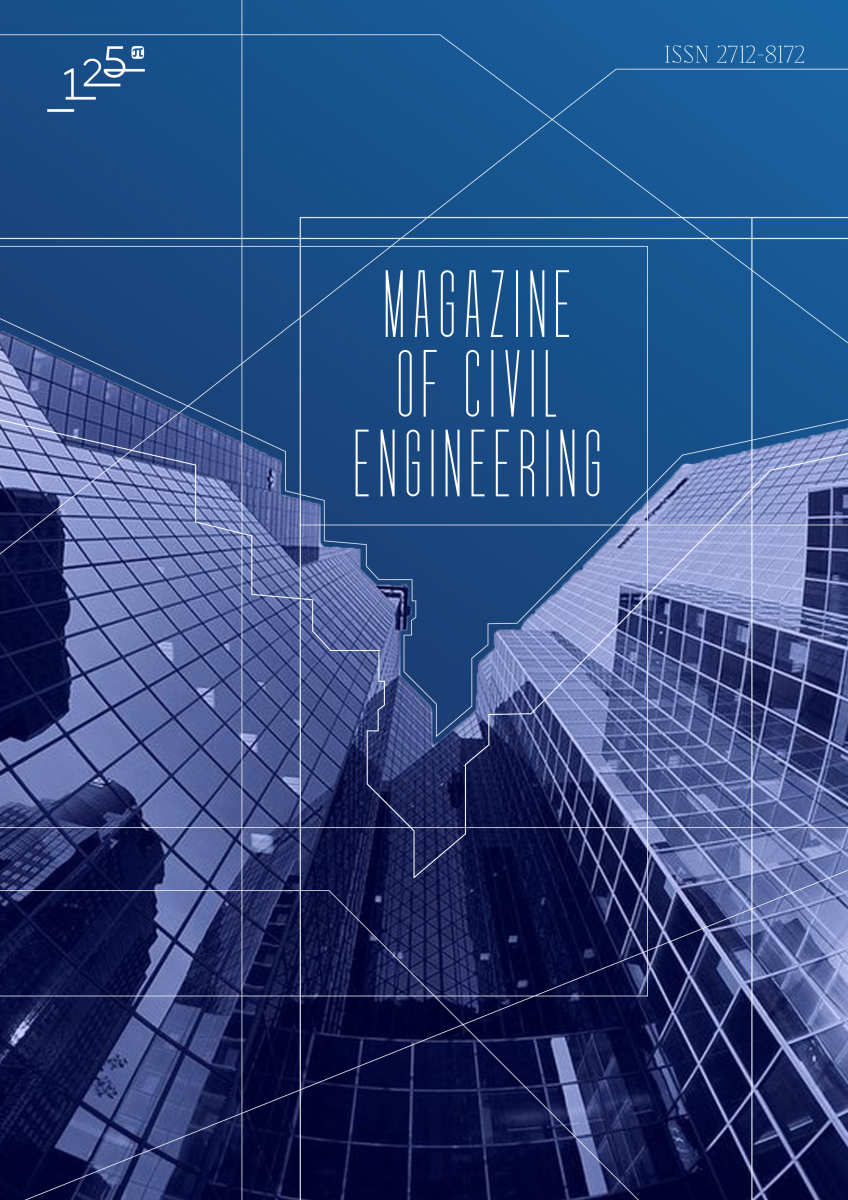Dynamic characteristics of a reinforced concrete frame under vibration load conditions
The object of the research is the reinforced concrete frame of an industrial building. A review of publications on methods of dynamic calculation of reinforced concrete structures is presented. Computational studies were carried out using the finite element method. The initial data for the calculation are the physical characteristics of the material of concrete, steel and base, the geometric parameters of the reinforced concrete frame obtained as a result of laser scanning. The resulting point cloud was combined with a mathematical model built based on design documentation. Based on a cloud of terrestrial laser scanning points, the computational model was refined. A comparison was made between the actual and design dimensions of columns and nodes. Discrepancies in the geometric dimensions of columns, nodes and connections were determined. The strength and stability of the reinforced concrete frame were not included in the methodology, but were used to determine the geometric dimensions of the structure, which are the initial data for the research. To determine the natural frequencies and vibration modes of the reinforced concrete frame, dynamic calculations of the equipment-frame-based system were performed. The equipment is presented in the form of distributed point masses on the marks of the frame consoles. An analysis of vibrations of the frame, based on which the structure was strengthened, is presented. The dynamic load from equipment operation is specified based on the measurements of vibration values in the longitudinal direction of the frame. The resonance zone during equipment operation was determined. Based on the results of the dynamic calculation, the frame structure was strengthened to prevent resonance phenomena. Test calculations and measurements showed the efficiency of the proposed method. The first translational (in the longitudinal direction) natural frequency increased from 3.609 Hz to 6.4258 Hz.


